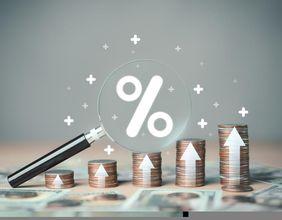Every day you hear about how important it is to have a high credit score and keep track of it. However, how exactly can it be improved? If you always pay all your payments on time, is that enough? How to know for sure what bills are helpful in building credit?
Unfortunately, not all bills have an impact on our credit score. While credit card and loan payments appear on and form our credit report, other payments do not. But that doesn't mean regular utility bills don't matter.
All bills need to be paid timely, and for better credit score, you may subscribe to services which share credit reports with credit bureaus. We will tell you about this and much more in this article.
Does Paying Bills Build Credit?
It is worth starting with the fact that bills can be different. Accordingly, their impact on credit will be different.
When it is about keeping a positive payment history, the most important thing is not to miss any payments. Your payment may or may not be listed in your credit report. However, if you have a debt, information about it will be passed on to the credit bureau, and your credit level will be reduced.
Let's see which bills have an impact on building a credit score and which do not.
What Bills Report to Credit Bureaus?
The bills issued by a bank or other type of lender are most often reported to the credit bureaus. This includes:
- Auto loan payments;
- Student loan payments;
- Mortgages;
- Credit card payments; and
- Personal loans.
This is because major lenders like banks or other companies use credit reports to evaluate your ability to pay. In addition, they are more dependent on strict reporting and systematization, so reports are regularly sent to the three major credit bureaus.
Submit your credit report. The lender not only transfers information about the payment but also send all other details of your account. When was it opened and closed, what balance is there at the moment, and what is your credit limit? All these parameters together form your credit score.
Bills That Are Usually Not Reported
Unfortunately, many monthly bills you pay are not listed in your credit report. Some of the most common types of bill payments which are not shown are:
- Cable;
- Utility bills (electric, gas, etc.);
- Phone bills;
- Rent payments; and
- Internet service.
Utility firms do not report the payments as they are not lenders. It so happened that only lenders always reported to credit bureaus.
Another type of payment that is also not recorded on your credit report is loan payments. If you pay off a no credit check loan from a direct lender, these payments will not show up on your credit report. For example, if you need money now but have a low credit score, you may consider applying for same-day loans online that do not leave a mark on your credit history.
When you get this kind of loan, you deal with a direct lender who does not opt for a credit check with the major credit bureaus but uses other methods to assess your ability to pay. However, failure to repay even such quick loans will lead to a worse credit score in the end.
Do Cell Phone Bills Build Credit?
Unfortunately, phone and utility bills are not included in the category of payments that appear on your credit report. However, this can be corrected. This method, termed as "self-reporting," needs a third-party service for sharing your details with credit reporting agencies.
However, this is not ideal either. There are certain points you should know:
Intermediary services are often paid, so consider this among your other expenses. And they may not report to the 3 major credit bureaus: TransUnion®, Equifax®, Experian®.
Even if your payment history is on your report, it does not guarantee a strong increase in your credit score. This is a more complex process, which is influenced by various factors. On-time payments cannot always have a greater impact than old unpaid loans or other debts.
Does Late Phone And Utility Bill Payments Impact Credit?
As we wrote above, unfortunately, this negatively works in the opposite direction. If you don't pay your utility bills and other monthly bills on time, your credit score will have a negative impact. The longer you go unpaid and the more you owe, the more negative the impact will be.
Your personal data, in this case, will be transferred to a collection agency, and they will transfer the information to credit bureaus.
Information about your past debt, even after it is paid off, will remain on credit reports for seven years or more.
How Important Is My Payment History?
Without exaggeration, your payment history is the main factor that shapes your credit score. It is in the history of payments that any potential lender or landlord looks at first of all.
For more context on the importance of payment history, let’s look at the FICO® scoring criteria. Your credit score is based on the following factors:
- Payment history (35%);
- Credit utilization (30%);
- Account age (15%);
- Inquiries/new accounts (10%); and
- Credit mix (10%).
VantageScore, a credit scoring model, created by the three major credit reporting agencies as an alternative to FICO®, looks at slightly different criteria. Your credit score will still be determined by the following unweighted factors:
- Payment history;
- Age and type of credit;
- Credit utilization;
- Size of balances;
- Inquiries/new accounts; and
- Amount of available credit.
In both the VantageScore credit score and Fico score, your payment history plays a fundamental role in making a decision and assessing your ability to pay. This is why making timely payments is so important and can ultimately have a significant impact on your credit score.
Other Ways to Build Credit
Fortunately, paying your utility bills on time is not the only way for better credit scores. There are multiple other ways to improve credit score, often quicker and more efficiently.
You can use these methods at the same time, particularly if you are planning to apply for a large loan in the foreseeable future and want to boost your credit score and approve for a lower interest rate at the earliest.
Use a Credit Builder Loan
A small loan gets deposited into a savings account, and you make payments over a fixed period to help build your credit history. Once you pay off the loan, you get all the money back.
Timely Loan Payments
Be sure to make payments on time for the loan, information about which is recorded in your credit scores.
This is the type of loan that you often get through a bank or other major lender: car title loan or student loan. Credit card payments and mostly any secured loan. All these loans have an impact on your credit score and your credit history.
This is both good and bad, so it is better to pay close attention to these payments and do not miss timely payments, as information about them is sent to credit bureaus and forms your credit health.
Pay Off Existing Debts
Having any kind of unpaid official debts, which are indicated in your credit history, significantly worsens your credit level. Unpaid medical debt, old utility bills, credit card debt, or other debts can leave a mark on your credit history for a long time.
As soon as possible, develop a payment plan and start implementing it. Try to pay off the entire amount of the debt as soon as possible, but even paying off part of it can significantly improve your credit line.
Apply For a Secured Credit Card
Another great way to build credit is by opening a secured credit card account.
A secured credit card is easier to obtain than an unsecured credit card due to a simplified set of requirements.
Even with bad credit, you can qualify for a secured credit card. Basically, they have a fairly low limit at first, which helps you avoid getting into too much debt and makes it easier to control spending of the credit card balance.
What's good: information about secured credit cards is reported to credit bureaus on the same basis as in the case of unsecured credit cards.
Also, if you've had this card for a while and haven't had a debt problem, your credit card issuer may offer you a higher credit limit or more comfortable terms down the line.
Make All Bill Payments On Time
You can't always be sure if a particular bill is affecting your credit score, but all bills must be paid. Utility payments may not increase your credit score or make it insignificant, but if you are late in payments and your details are turned over to a collection agency, it will definitely affect your credit score.
To avoid reducing your credit health in this way, look for your on-time payments. A day or two late probably won't have serious consequences, but it's not worth the risk. Paying bills should be a regular expense for you.
Any debts can grow like a snowball if they are not paid on time.
In Conclusion
Answering the main question: "does paying bills build credit" we can say - yes, but under certain conditions. On-time payments are essential to building a good credit score. Utility payments, rent payments, credit card bills, and all the other monthly bills are very important. Especially if your current credit score is bad or not high enough, all these timely payments can significantly increase your level in the eyes of potential lenders. Now you know exactly what bills help build credit, as well as other ways to improve it.





